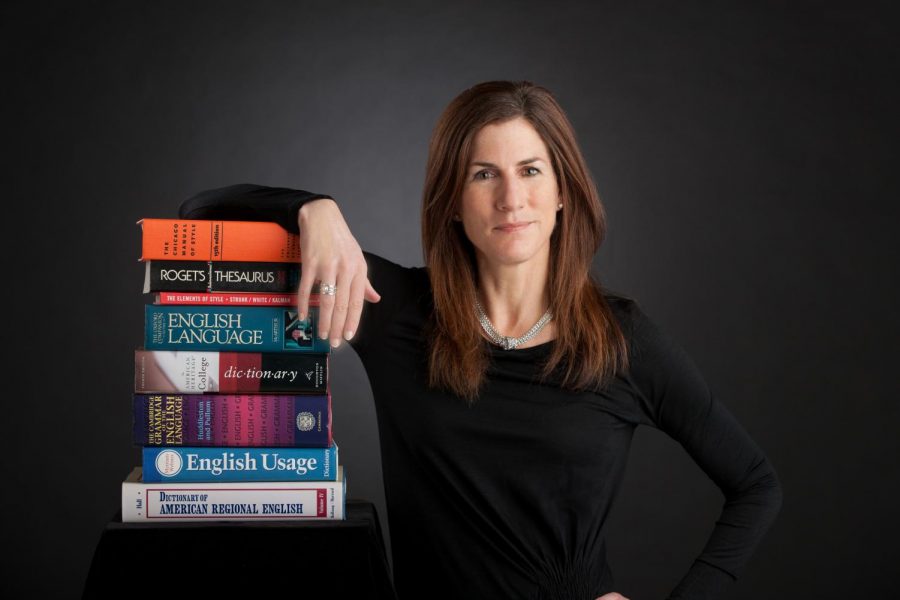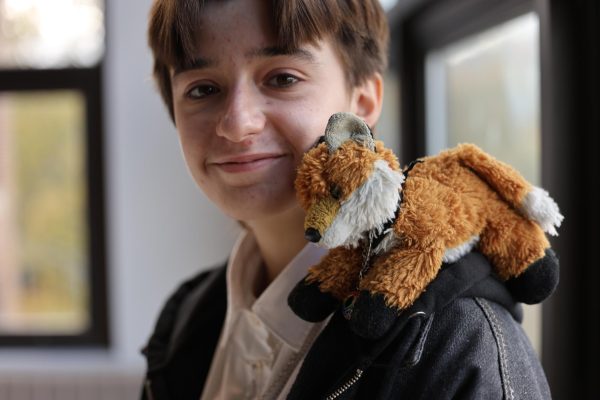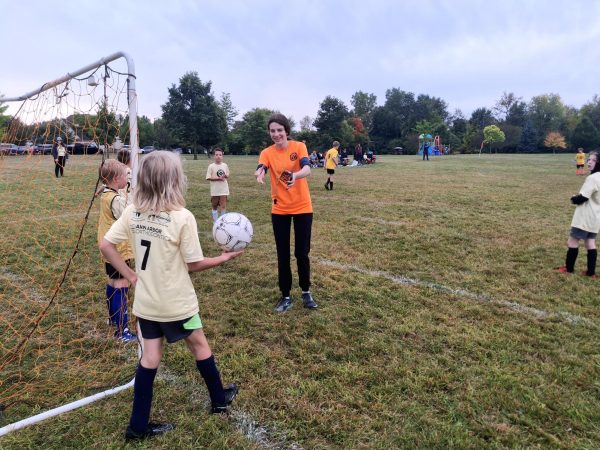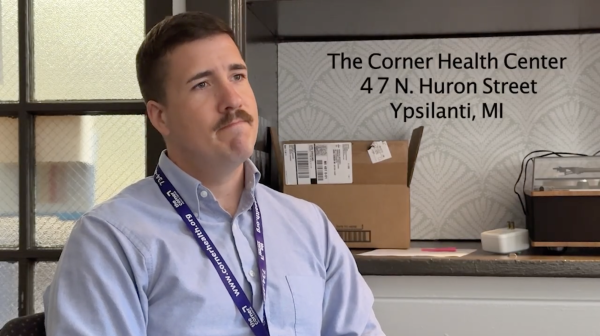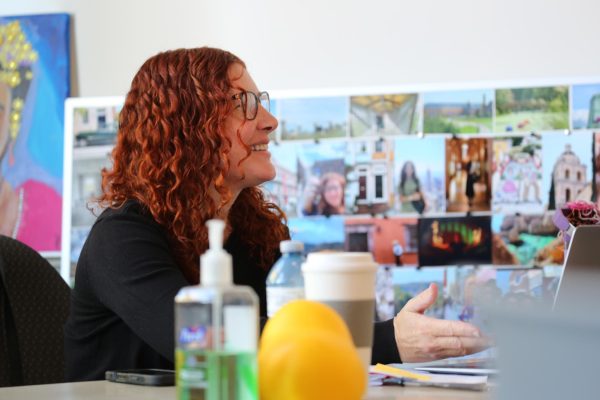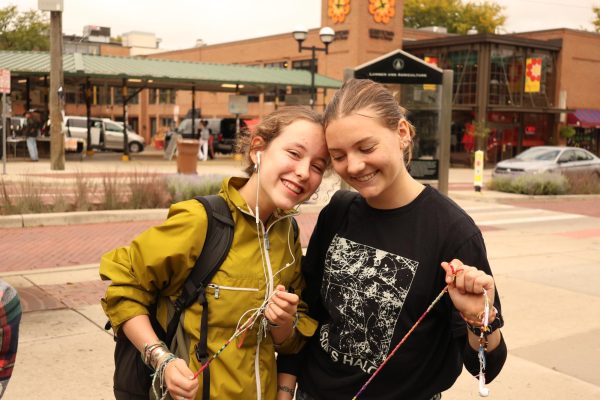Anne Curzan: On Interviewing Hillary and Finding Her Passion
As a professor of English Linguistics at the University of Michigan, an Associate Dean for the College of Language, Science and the Arts, and the proud face of her own segment on Michigan Radio, Anne Curzan finds plenty of ways to keep herself busy.
Originally a math major in college, Curzan did not fully realize what she wanted to do at first. She had always been interested in studying languages, but truly became engrossed in linguistics when she took a course on the history of the English language.
Curzan’s love for teaching stemmed from a two year trip to China, where she taught English immediately after she graduated from college. While in China, Curzan believes that she discovered who she was meant to be. “Your life will look like it makes sense when you look back at it,” Curzan said. “But when you’re making the decisions, sometimes you’re just taking a jump. China was definitely that for me.” Not only did Curzan learn a new language, she also learned who she was when there was nothing familiar around her.
Through her job, Curzan has encountered many mind-blowing opportunities. Her most recent endeavor was slightly out of her comfort zone, but an incredible experience nevertheless. Curzan was chosen to be the Michigan faculty member to interview Hillary Clinton when she spoke in Ann Arbor on Oct. 24. She was incredibly honored to accept the interview opportunity, but was simultaneously intimidated due to Clinton’s accomplishments.
To prepare for the interview, Curzan first read Clinton’s recent book “What Happened,” then created a Google Doc with her friends and family to brainstorm possible questions. “I tried to channel Terry Gross, from Fresh Air, who is a phenomenal interviewer,” Curzan said.
When Curzan tells people that she’s a linguist, people often become overly conscious of how they speak around her, but she did not expect that Clinton would be one of those people. “We sit down, and I’ve introduced [Clinton] and she looks at the audience and says ‘Well as you all know, Anne is a linguist, and someone who is a specialist in the English language, and it’s very daunting to talk to her.’” Curzan said. “It was very nice of her to say but I’m thinking, ‘That is not the most daunting thing that’s happening on this stage right now!’”
Although Curzan does know a lot about the English language, its history, and its evolution, she does not often correct the way people speak unless she is asked to. “It can be very mean and very silencing if you correct somebody else’s grammar,” Curzan said. “And you may not even be right! So, you have to be careful.”
Curzan spends an abundance of her time researching words and learning about how they became part of the English language. While many “sophisticated” adults look down on slang, Curzan embraces it. “I’m interested in how the language is changing all around us,” she said. “Young people are the movers and shakers of language change, so to understand language change you have to pay attention to what young people are doing”
It is not only with grammar and slang that people often jump to conclusions, but with dialects too. Dialects such as African American Vernacular English are often looked down upon. “There is actually a linguist who argues language is one of the last backdoors to discrimination,” Curzan said. “That people will criticize other people’s language, and say you shouldn’t have this job because you speak that way. All of our dialects are rule governed, all of our dialects are systematic, so people do need to learn: how does variation work? Why does that dialect work that way? Because the stakes are really high.”
Curzan absolutely loves her job. “I think that I have one of the most fun jobs,” she said. I really want people to see the way that linguistics helps you understand the language you hear and see everyday.”
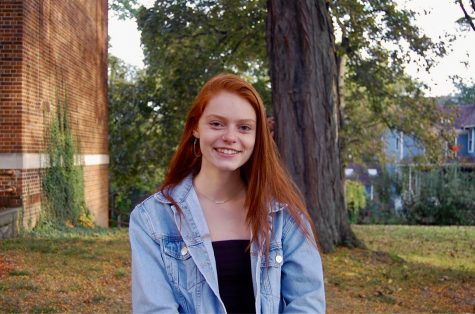
Roxie is a senior at Community High and this is her third year on Communicator staff. When not at school, you can find Roxie hunched over her laptop at a coffee shop working on one of many passion projects, at a political meeting, event or rally, or taking a much-needed nap in her super comfy bed. She enjoys watching stand-up comedy, the news, The Daily Show with Trevor Noah, Veep, and Dance Moms — an eclectic mix that perfectly captures her essence. Roxie is so grateful to have one more year on Communicator and looks forward to working with the incredible staff to create meaningful work!



